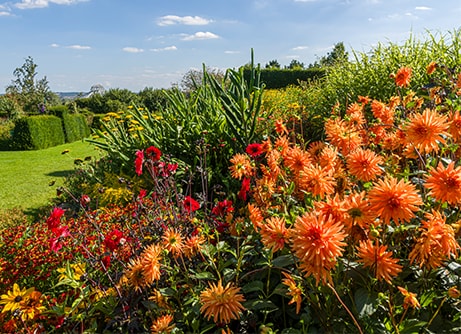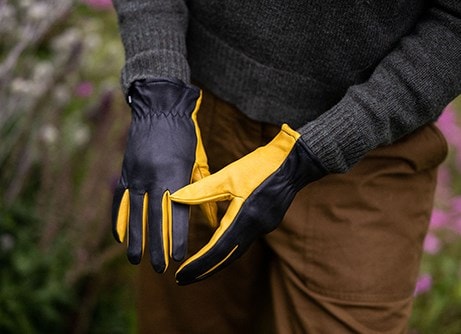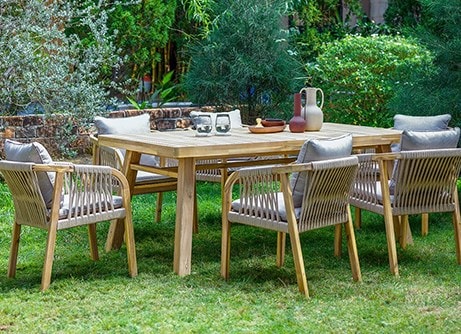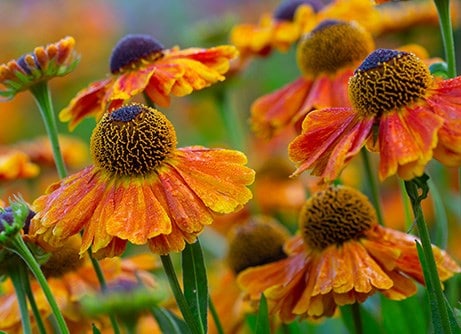
A late flowering tulip that stands out as a striking addition to any garden, boasting large, full double flowers in a captivating scarlet red to vivid pink hue backed with a smudge of lime green. With multiple layers of petals resembling peonies, these blooms exude elegance and charm and are held proudly on sturdy stems, drawing the eye with their vivid coloration and lush appearance. Complemented by sturdy, lance-shaped grey-green leaves, 'Pamplona' adds a touch of sophistication to borders and beds, creating a focal point that commands attention.
How to care for Tulipa Pamplona:
Using fresh, good-quality compost, plant bulbs in pots from September to November. For borders, we advise waiting until after the first frosts (typically mid-October to early December depending on your location) to reduce the risk of potential disease such as Tulip Fire. Plant bulbs 15-20cm (6-8in) deep and 10-15cm (4-6in) apart in fertile, well-drained soil. Alternatively, allow 7-9 bulbs per 30cm sq or 60-75 bulbs per m². If you’re unable to plant your bulbs immediately, they can be stored in a cool environment with good air circulation. Remove all the packaging and place them in a loose-weave jute sack before labelling and hanging up in a dry, unheated garden shed or well-ventilated greenhouse.
In spring, when the plants are in active growth, apply a high-potash fertiliser (like Tomorite) each week until the leaves start to die back. Pinch off the spent flower heads as the petals fall, and let the stem and foliage die back naturally. The bulbs can then be lifted and discarded, or cleaned, dried and stored (as before) for replanting the following autumn.
In spring, when the plants are in active growth, apply a high-potash fertiliser (like Tomorite) each week until the leaves start to die back. Pinch off the spent flower heads as the petals fall, and let the stem and foliage die back naturally. The bulbs can then be lifted and discarded, or cleaned, dried and stored (as before) for replanting the following autumn.
Flowering period:
- Jan
- Feb
- Mar
- Apr
- May
- Jun
- Jul
- Aug
- Sep
- Oct
- Nov
- Dec
Eventual height:
0.4m
Eventual spread:
0.15m
Position:
Full sun
Rate of growth:
Average
Soil:
Moderately fertile, moist but well-drained soil, or peat-free general purpose compost
Hardiness:
Fully hardy
-
This bulb dies back after flowering each year and enters a period of rest ahead of regrowth the following season.
-
Humans: Harmful if eaten; skin allergen; Pets: Ornamental bulbs - not to be eaten
Product options

7 × bulbs
£7.99
£1.14 each
Delivered during September

21 × bulbs
£21.00
£1.00 each
Delivered during September
1
Delivery options (pick your preferred option at checkout)
Bulbs (only)£4.99









